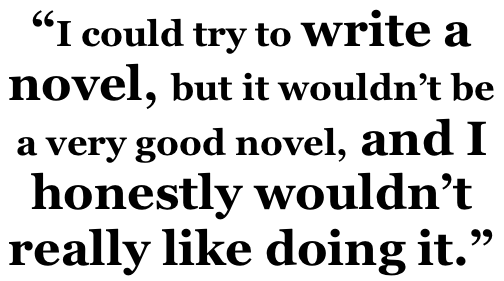
ES: I guess an arc feels like a tactful, if somewhat evasive, way to say, like, a resolution. Or, how did you think about structuring it?
SM: First of all, I know I am not capable of writing linear narrative because it just feels utterly unrealistic and artificial to me. I’m not interested in producing artifice. I’m interested in trying to produce things better and more accurately. Not even just in this book — just in general. I think at some point in the book, I say, I’m trying to write about these last ten hours of Harris’s life, during which he was missing, after he escaped from the psychiatric ward, and at one point I consider superimposing this narrative onto the ten hours — you know, imagining what he did. At one point I attempt to do it but it just seemed like the most morally bankrupt and least interesting part of the project. There are clearly writers who could probably make something absolutely beautiful out of that, but I’m going to be 40, and I really feel that I’ve arrived at a point where I know what I’m capable of doing, and I’m really not interested in forcing myself to try to think in a way that doesn’t come naturally to me. I know what I can do.